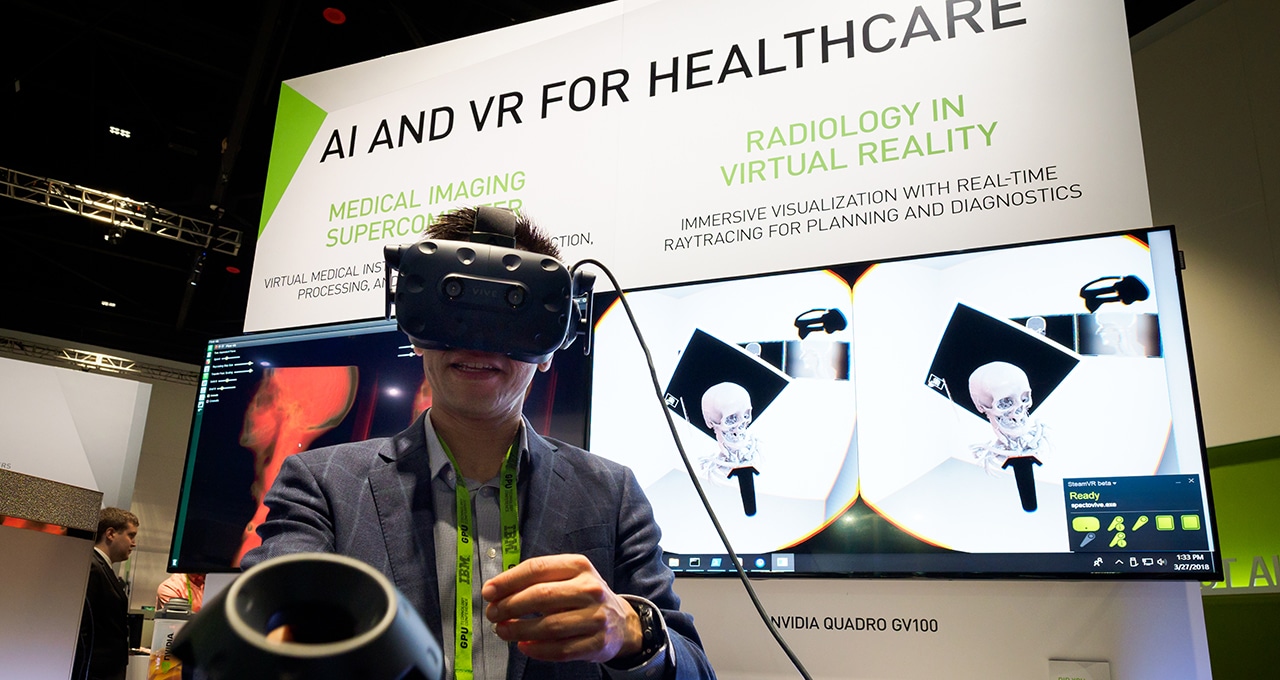The buzz around AI in medicine is contagious. From radiology and drug discovery to disease risk prediction and patient care, deep learning is transforming healthcare from every angle.
You can learn about it all at the GPU Technology Conference, where healthcare innovators from industry, universities and medical institutions will gather to share how AI and GPUs are empowering doctors and researchers. GTC takes place March 17-21 in San Jose.
The conference healthcare sessions feature presentations by renowned names in medicine — including from four of the top five academic medical centers in the United States, and from five of the nation’s top seven radiology departments.
A highlight of the week will be the Tuesday morning talk by luminary Eric Topol, founder and director of the Scripps Research Translational Institute. Topol will speak about the opportunities AI and deep learning present for clinicians, health systems and patients.
The talk will be followed by a signing for his forthcoming book, Deep Medicine: How Artificial Intelligence Can Make Healthcare Human Again.
A Host of Opportunities to Learn
The week is packed with more than 40 healthcare sessions, covering topics as diverse as medical imaging, genomics and computational chemistry. Here are a few standouts:
- AI in Diagnostic Imaging: An Opportunity to Reinvent the Clinical Workflow: Penn Medicine radiologist Tessa Cook will describe AI initiatives to help radiologists and physicians deliver more effective, personalized care to patients.
- Developing a Roadmap for Machine Learning in Clinical Radiology: Christopher Hess, UCSF’s chair of radiology and biomedical imaging, will outline opportunities, challenges and strategies for incorporating AI in diagnostic radiology.
- CUDA-Accelerated Short-Read Alignment to a Large Reference Genome: Richard Wilton, research scientist at Johns Hopkins University, will discuss how a CUDA-accelerated tool can be used to align short DNA reads to large reference genomes 10 times faster.
- Deep Domain Adaptation and Generative Models for Single Cell Genomics: UC Davis assistant professor Gerald Quon will share how deep learning can be used for single cell genomics, transforming the study of molecular biology and identification of treatments for diseases like malaria.
- Molecular Generative VAEs: Parallelization, Optimization, and Latent Space Analysis on the DGX-1: Ellen Du and Joey Storer, of The Dow Chemical Company, will present work using generative variational autoencoders for chemical discovery, run on the NVIDIA DGX-1.
- Improving Healthcare with NVIDIA Virtual GPU and VMware Horizon: Nebraska Medicine senior engineer Shane Limbach will share how the health network is using virtual desktops with NVIDIA vGPU technology.
Throughout the week, attendees can join two-hour, instructor-led training sessions on AI and accelerated computing, including workshops specific to medical use cases.
Robust Presence on the Show Floor
Healthcare entrepreneurs in NVIDIA’s Inception virtual accelerator program can be found at speaker sessions, booths and poster sessions and at the Inception Theater on the show floor. You’ll hear how companies including Proscia, Subtle Medical, Arterys and ImFusion are using AI for medical imaging, pathology and more.
Major healthcare institutions including Mass General Hospital will also be sharing how they use AI and GPUs to transform medicine and patient care.
For healthcare startups, there will be a meetup at the Inception Lounge on Wednesday, March 20, from 5-6 pm. And, of course, our booth will feature demos of GPU-powered healthcare applications and showcase the NVIDIA Clara platform for medical imaging applications.
Check out the full healthcare track at GTC, and register today. Here are five more reasons to attend:
